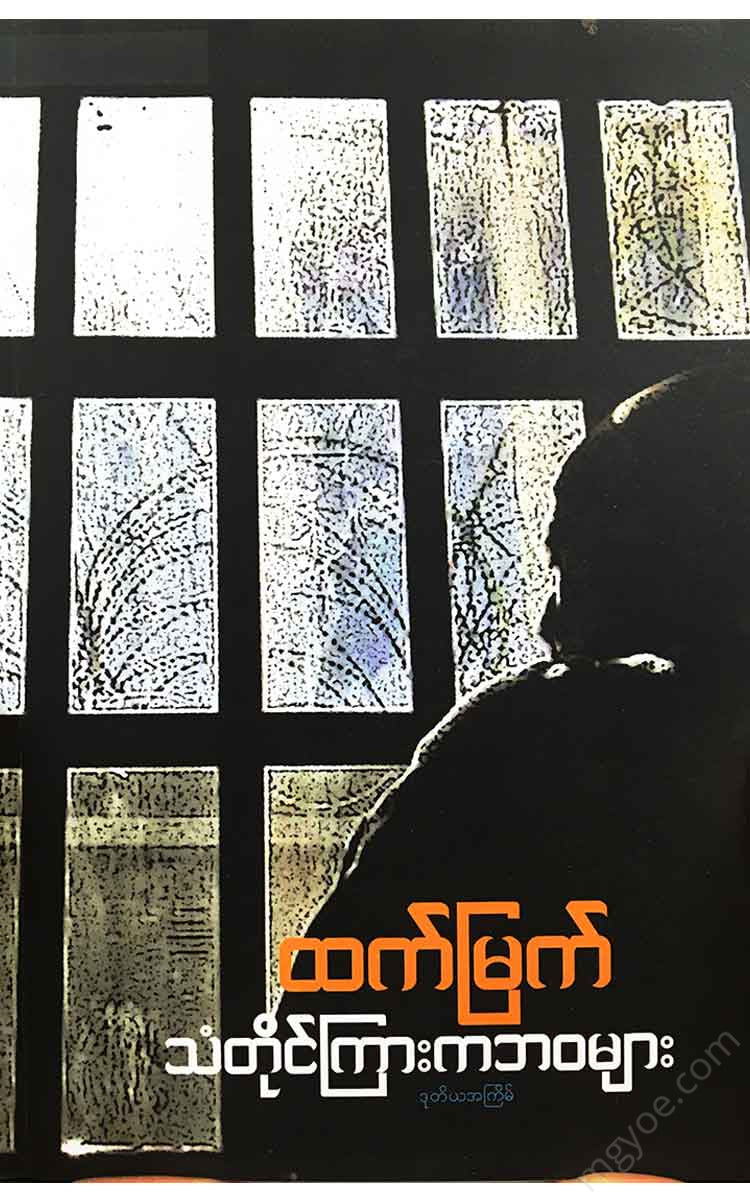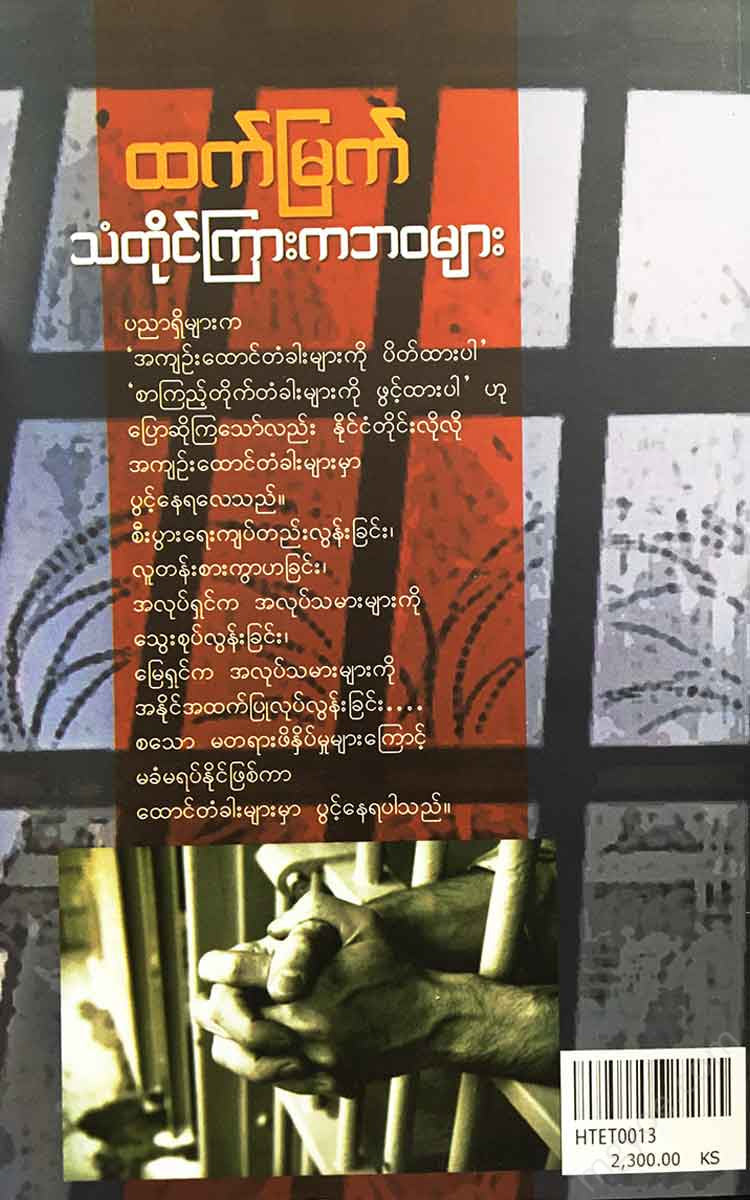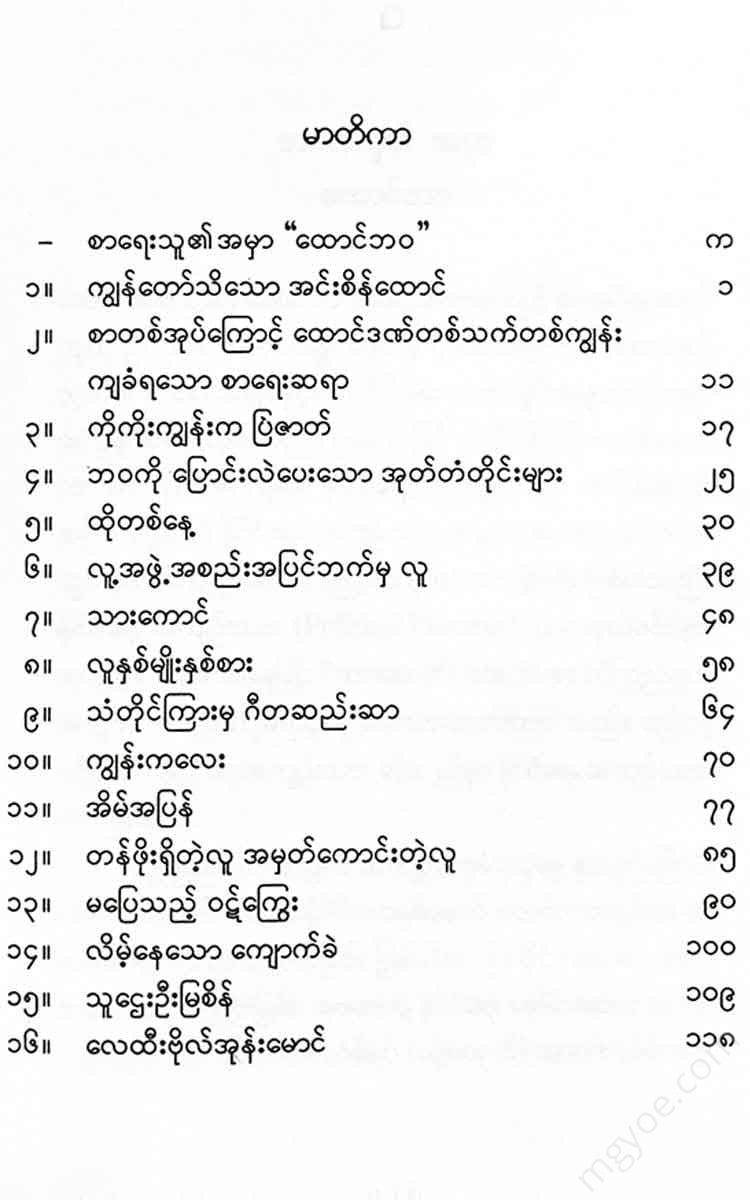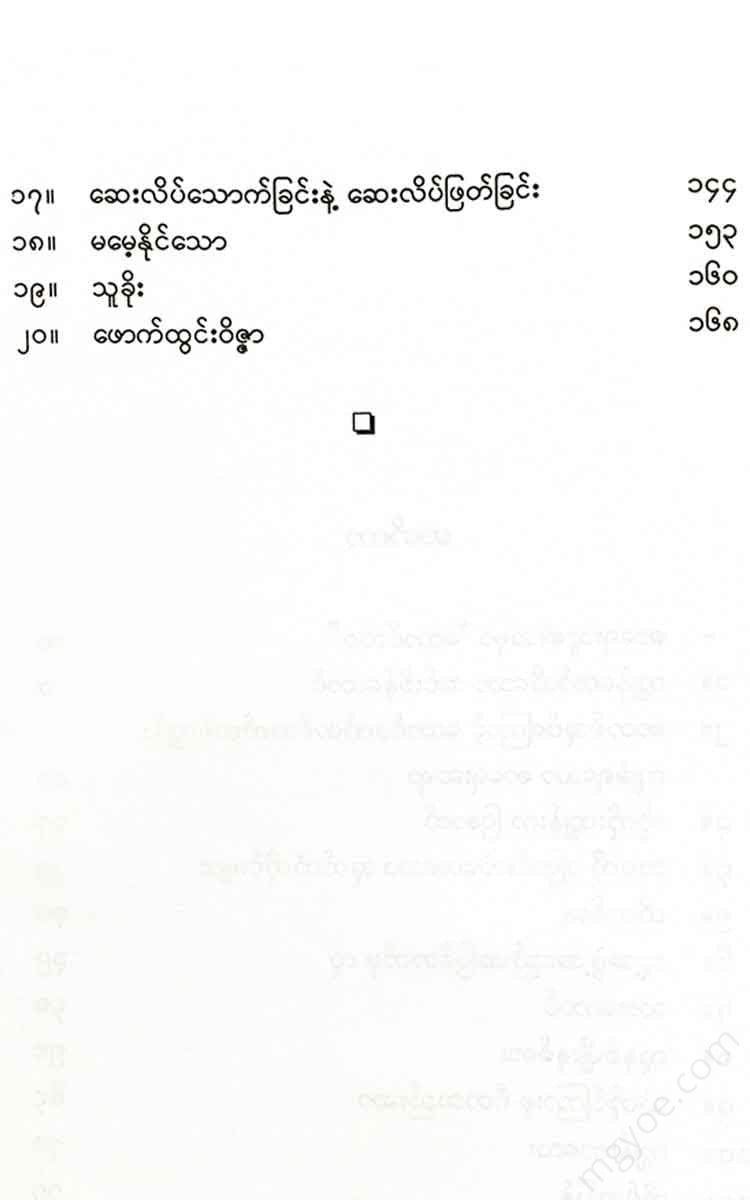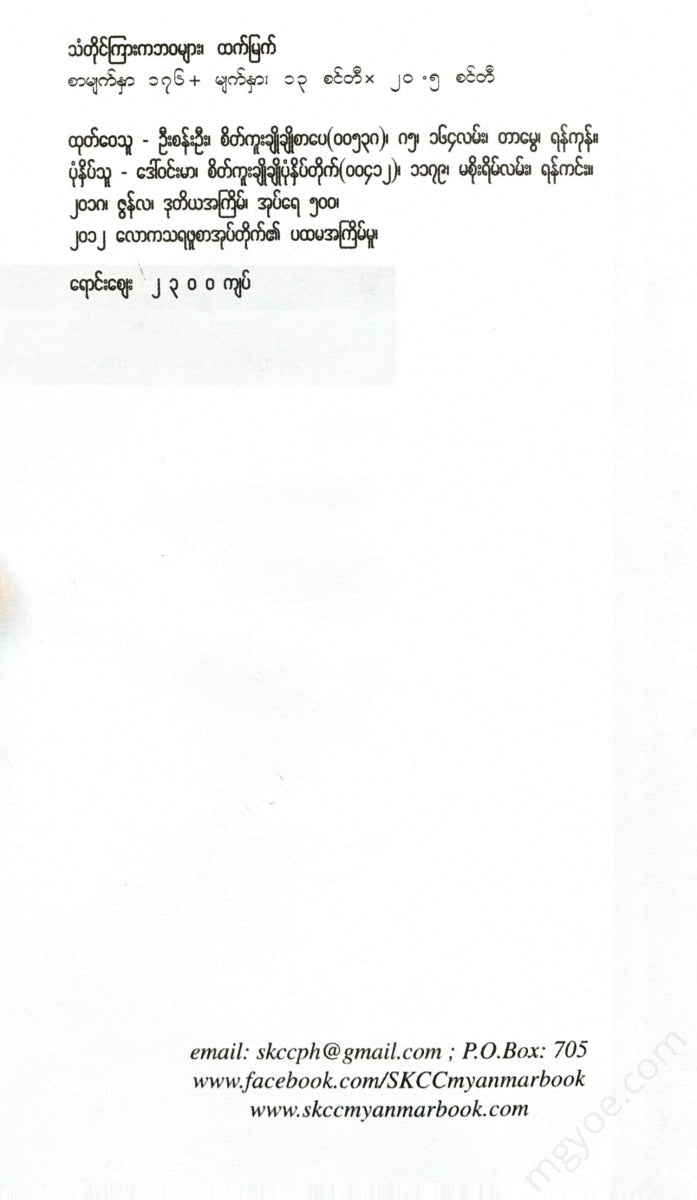စိတ်ကူးချိုချိုစာပေ
Smart - Lives of the Iron Curtain
Smart - Lives of the Iron Curtain
Couldn't load pickup availability
Among the writers and books that have written about prisons, many books such as “Little Birds in a Cage”, “Prison and Humanity”, and “War, Love and Prison” by Lut Hla are very prominent. They wrote about those imprisoned in prison under the rights of political prisoners who were detained under Article 5 during the parliamentary democracy era. Political Prisoners are often described by the press as Prisoners of Conscience, or prisoners of conscience. In any case, political prisoners are political prisoners.
It is not a new name for a person imprisoned for their beliefs, but the term has been around since the beginning of parliamentary democracy. For centuries, anyone who opposes a political leader (or a political party) or a coup d'état (or a military coup) or a coup d'état has been called a political prisoner. In the feudal era, when a king rebelled and took over the throne, there was no such term, but they were called rebels or rebels. That too started with the problem of power struggle and the political rule of the country. The king and (or) prince who was overthrown and imprisoned and his followers were also political prisoners.
After the publication of Luthu U Hla’s books about prison, writers who were arrested under Section 5 wrote stories and articles that more or less depicted the lives of prisoners. Sayar Mya Than Tint’s novels “The Tenth Visit” and “Buying the Shadow of Darkness” are novels about real prisoners. They are very famous. At that time, Section 5 and criminal prisoners were kept separate, but they met and talked. While writing, he wrote about the lives of the prisoners in a heartbreaking way.
Their stories have reached the readers. Luthu U Hla’s novel “With the Wind” about prison and “Little Birds in a Cage” were even awarded UNESCO prizes. They were published because there was freedom of writing at that time. During the dictatorship, such freedom of writing was lost and stories about prisons became stories that were not read or heard. There were all kinds of people in prison. There were workers, farmers, clerical classes, landowners, and employers.
Most of them are manual workers. The most common reason for imprisonment is economic. Robbery is also due to lack of food and drink, and they are so hungry that they steal and rob. Some cannot stand it because of the unjust blood-sucking landowners and become murderers. There are also tragic love stories. The story of the landowner's daughter and the tenant, the story of the maid who is trampled by the landlord, and the story of a young husband and a young wife who commit murder. The number of people in prison is because of the social system. In a country like the United States, the number of people in prison is overcrowded. It will be the country with the highest number of prisoners. The country with the strongest economy, rather than a poor country, the doors of the prison are always open because of the social system.
Wise men say, “Close the prison doors. Open the library doors,” but in almost every country, the prison doors are always open. The economic hardship, the class gap, the employers who exploit the workers too much, the landlords who oppress the workers too much, and so on, are unbearable and the prison doors are always open.
The prison life I experienced was also a journey through many different people and lives, and I learned about prisoners. In our time, the 1974 Constitution abolished the term political prisoner. Under the Burmese socialist path, the term political prisoner was abolished because it was incompatible with the socialist system. At that time, there were major political movements taking place throughout the country. The U Thant uprising, the labor strike, the Hmoeyar Pyae uprising, etc., were annual public struggles, public demonstrations, and struggles against the government. At that time, all political prisoners arrested for political crimes and those who came to prison for political activities were kept with other criminals. The food and accommodations were the same.
The rights of political prisoners in the past were nothing. Those who went to prison for strikes and secret writings had to work in the Insein Prison Department like other criminals. The only difference was that they did not have to go to the police. In the era when political prisoners were not defined, politicians and writers were no different from the era of Luthu U Hla, the era of Bhamo Tin Aung, the era of Thakin Mya Than, Mya Than Tint, and Kyaw Mya Than. I also lived through the era of political prisoners known as the Section 5 era. Although I did not have the rights as a B-club prisoner, I did have the rights as a Section 5 prisoner. In the era when political prisoners were not defined, I did not have the right to eat or drink, but I lived a life of eating beans and fried fish paste in the morning, boiled sweet potato leaves in water, fried fish paste and coarse rice. Although I was allowed to eat meat once a week, I was given a piece of fried fish like goldfish. Sometimes I was given a piece of fried fish. Sometimes I was given a piece of boiled pork. A person who doesn't eat boiled pork is given four boiled eggs. In reality, he only gets two boiled eggs.
For prisoners without a prison card, the day of the meat meal is a day of great joy. Most of the prisoners are without a prison card. In such a situation, the only time to inquire about the life of the prisoners is at night. We are not allowed to write. We are not allowed to carry papers, books, pencils, or pens. So we have to take notes with our heads. Some things I don't remember anymore. Whatever I remember, I write down later. We only write what I am allowed to write, and then we write about it five years later. Some events happened thirty years ago, so I write down the most important events as I remember them.
We only met prisoners when we had to move from apartment to dormitory. We didn’t stay long. We moved back to the apartment. The authorities don’t keep criminals and political prisoners together for long. They are afraid that criminals will be organized by political prisoners and there will be strikes and protests in the prison. During the parliamentary government of the PFLP, there were strikes and protests in the prison, and the conditions were so bad that they had to be suppressed by firing squads. Therefore, politicians were only kept in the dormitory for a short time and some were moved back to the barracks. Prison
